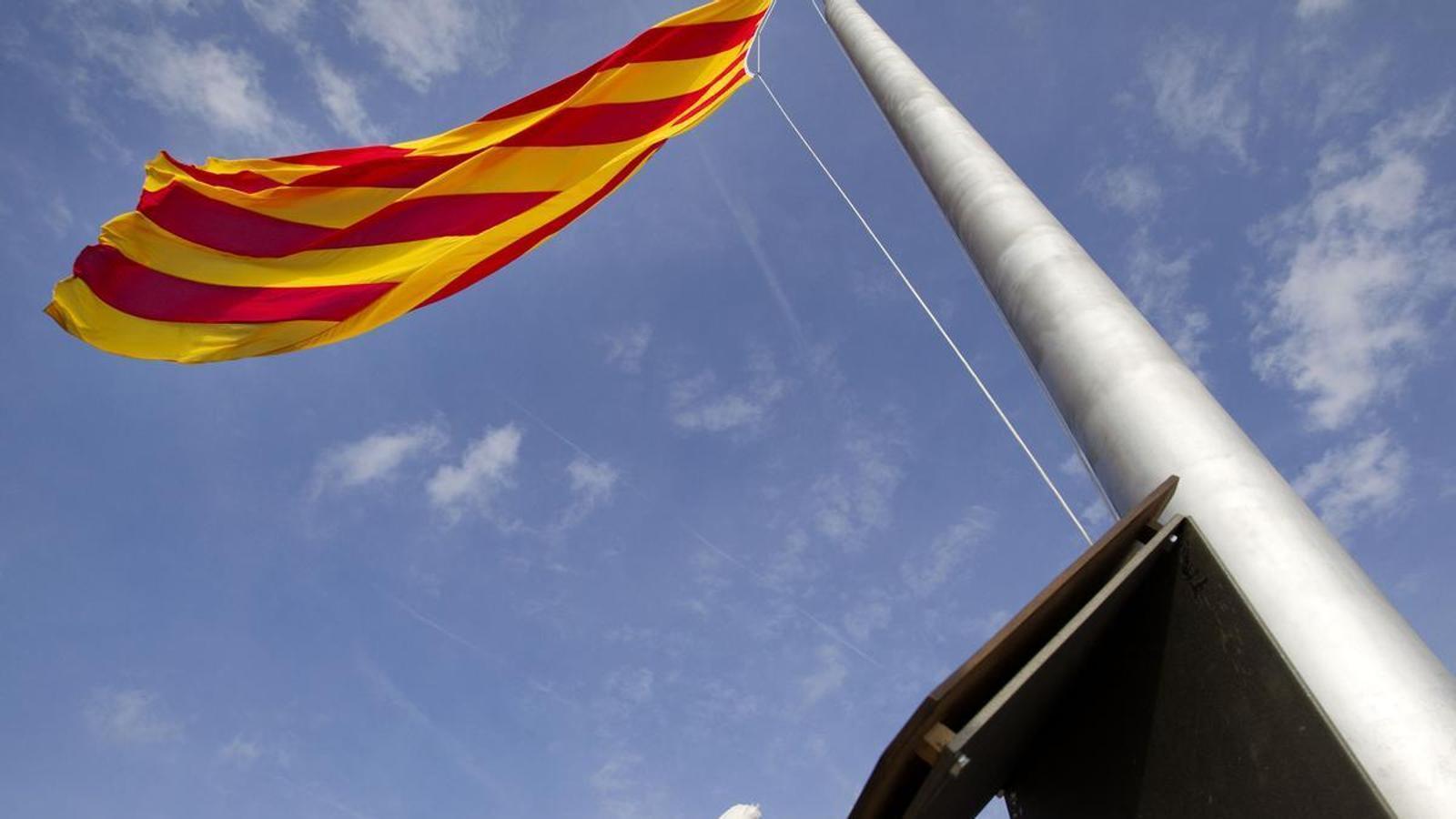
"Catalonia is not the history we've been told, but the history we want to write. It is not the cult of the dead, but the cult of the children yet to come." I have always been impressed by Rafael Campalans's unadorned foresight. A resplendent lucidity like that which lies in this reflection, highly pertinent on the eve of our national holiday and the beginning of the commemorative tradition of raising the Senyera (Spanish flag) in Ciutadella Park on the eve of September 11.
We must return, time and again, to the mastery of this democratic socialist, consistent Catalanist, advanced pedagogue, and director of the School of Labor during the Commonwealth.
Campalans has made me think about flags. Flags that evoke multiple emotions, belonging, identity, culture. Flags laden with meanings, often different depending on the moment in a country's history.
There are flags that unite and flags that separate. Flags that integrate and flags that divide.
The European flag is a good example of the former. The blue ensign with twelve gold stars symbolizes unity and cooperation among the Member States. Much improved, of course, but ever closer unity and cooperation, based on democracy, the rule of law, freedoms, and human rights.
The blue flag is much more than an institutional emblem; it is a symbol of European unity and the shared identity of millions of Europeans who recognize ourselves united in our diversity.
This symbol has been proudly displayed since last year, and for the first time in history, on the main façade of Barcelona City Hall, alongside the flags of Barcelona, Catalonia, and Spain.
The Senyera, the representative emblem of all Catalans, became a symbol in the 1970s of the longed-for and recovered freedom and democracy, and also of the political integration of all "citizens of Catalonia," to whom President Tarradellas addressed himself upon his return from exile. Catalans, regardless of their origin, language, or status.
The flag has been an element of unity, present at all social, cultural, and sporting events in all neighborhoods and towns across the country. It has been the symbol of a Catalonia that thinks and feels whole and united, with one fundamental objective: to project itself from unity toward a better future. In those early years of the new democracy and regained political autonomy, on September 11th and Sant Jordi, the balconies were filled with flags celebrating unity, freedom, democracy, and autonomy. In other words, the community.
And now the time has come for all Catalans to reunite under the flag, which is the flag of all, the true national symbol.
Nations, like cities, need symbols that represent and unite us. And now that Catalonia has entered a new political era of normalization and civic reunion, it is necessary to highlight the flag as a symbol of unity.
For this reason, as Mayor of Barcelona, Cap i Casal, I welcome and join institutionally, and on behalf of the country's municipalities, the initiative of the President of the Parliament of Catalonia to raise a large flag in Ciutadella Park. A proposal that he made to me a few months ago with the aim of reaffirming and symbolizing Barcelona's status as the capital, and as an act to kick off the commemorations of Onze de Setembre, which will be attended by the Government of Catalonia and the Right Honorable President of the Generalitat.
This initiative, which will become a new unifying tradition for the Diada, must serve to reinforce the transversal and unitary nature of the symbols of Catalonia. Therefore, Barcelona City Council has collaborated and will continue to collaborate in its implementation.
The flag must be the symbol of everyone. The symbol of a Catalonia united in its diversity, united by its desire to build a better country.
We want the flag to be the flag of a great future project for Catalonia. An inclusive flag in which all Catalans feel represented.
The flag must make us proud of the Catalonia of today: a Catalonia with a shared national project.
Barcelona, proud as the capital of Catalonia, wants to contribute with determination to the construction of a country that overcomes divisions and looks to the future with confidence and determination. A country we all write together, a country that, in the words of Campalans, worships the children yet to come.
